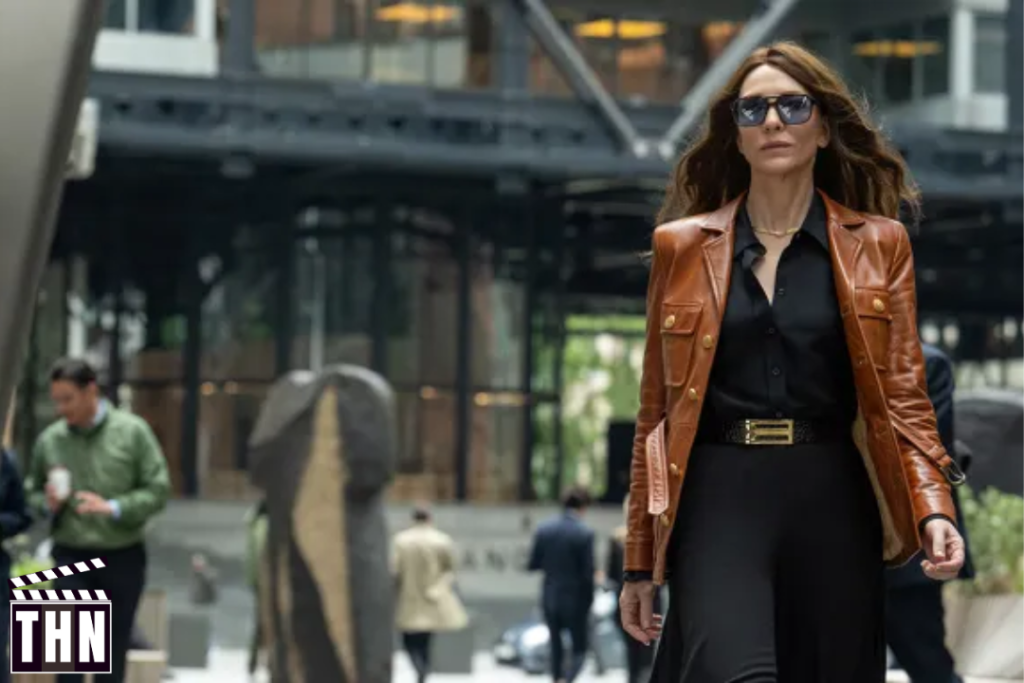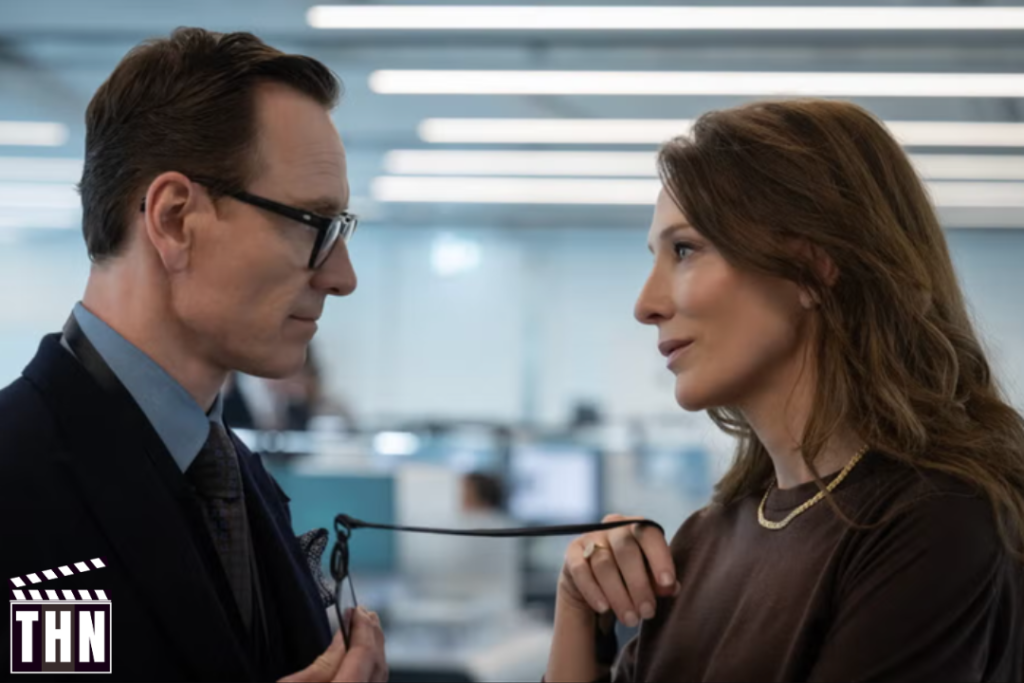Steven Soderbergh’s Black Bag is not your typical spy thriller. There are no high-speed car chases, no elaborate explosions, and no globe-trotting escapades to exotic locales. Instead, the film offers a sensuous, cerebral take on espionage, where trust is a weapon and love is the ultimate battleground. Anchored by powerhouse performances from Cate Blanchett and Michael Fassbender, Black Bag is a sleek, 90-minute exercise in tension, wit, and understated elegance that proves less can indeed be more.
A Marriage of Secrets
At the heart of Black Bag is the relationship between George Woodhouse (Fassbender) and Kathryn St. Jean (Blanchett), a married couple who also happen to be high-ranking British intelligence agents. Their marriage is built on mutual respect, shared ambition—and a web of secrets. When a cyberweapon capable of unleashing catastrophic damage is stolen from their agency, George is tasked with identifying the mole responsible. The list of suspects is short, and to his horror, his wife Kathryn is on it.
As George begins his investigation, he faces an impossible dilemma: Is his loyalty to his country or to his wife? And if Kathryn truly is the traitor, how much of their life together has been a lie? These questions form the emotional core of Black Bag, which explores the thin line between love and betrayal with razor-sharp precision.
A Cast That Commands Attention

Blanchett and Fassbender are magnetic in their roles, bringing depth and complexity to characters who could have easily been reduced to archetypes. Blanchett’s Kathryn is enigmatic yet vulnerable—a woman who can disarm with a glance but whose true motives remain tantalizingly out of reach. It’s a performance that recalls her work in Carol and Thor: Ragnarok, blending icy sophistication with flashes of raw emotion.
Fassbender’s George, on the other hand, is all quiet intensity. His meticulous attention to detail and unyielding sense of duty make him both admirable and deeply human. Together, Blanchett and Fassbender create an electric dynamic that crackles with tension in every scene they share.
The supporting cast also deserves praise. Tom Burke and Marisa Abela steal scenes as a dysfunctional spy couple whose volatile relationship adds both humor and pathos to the story. Regé-Jean Page, Naomie Harris, and Pierce Brosnan round out the ensemble with performances that bring depth to their morally ambiguous characters.
Soderbergh’s Signature Style
Steven Soderbergh has always been a master of genre reinvention, and Black Bag is no exception. Eschewing the bombast of traditional spy thrillers, he opts for a more intimate approach that focuses on character dynamics and psychological intrigue. The film’s pacing is deliberate but never slow; every scene feels purposeful, building toward revelations that are as emotionally satisfying as they are narratively surprising.
Visually, Black Bag exudes cool confidence. Phillip Messina’s production design transforms London into a world of sleek modernity, where every detail—from the couple’s Architectural Digest-worthy home to their impeccably tailored wardrobes—reinforces the film’s polished aesthetic. Soderbergh’s camera work is equally restrained yet effective, capturing moments of quiet tension with an unflinching eye.
A Spy Thriller Without Explosions
What sets Black Bag apart from other entries in the genre is its refusal to rely on action set pieces or over-the-top gadgetry. Instead, it finds its thrills in dinner table conversations laced with subtext and glances that speak volumes. In one standout scene, George invites all four suspects—including his wife—to dinner at their home. As they sip wine and exchange barbs about Edward Snowden, George doses one dish with truth serum in an attempt to unearth the traitor among them. The result is a masterclass in tension-building that feels both playful and deeply unsettling.
The film’s script, penned by David Koepp (Mission: Impossible), strikes a perfect balance between dry humor and genuine suspense. Lines like “It’s a very sexy piece of code” manage to poke fun at espionage clichés while still immersing viewers in the high-stakes world of cyber warfare.
Themes That Resonate
Beneath its stylish exterior, Black Bag grapples with universal themes of trust, loyalty, and identity. How well can we ever truly know another person? What sacrifices are we willing to make for love? And when those we hold closest betray us—or appear to—how do we reconcile our emotions with our responsibilities?
These questions give Black Bag an emotional weight that lingers long after the credits roll. It’s not just a film about spies; it’s a film about people—flawed, complicated people navigating impossible situations.
A Perfectly Crafted Morsel
If there’s one criticism to be made about Black Bag, it’s that it leaves you wanting more. At just 90 minutes long, the film feels like an amuse-bouche rather than a full meal—a tantalizing taste of something extraordinary that ends before you’re ready for it to be over. But perhaps that brevity is part of its charm; like its characters, Black Bag reveals just enough to keep you intrigued without ever giving everything away.
Conclusion: A Coolly Confident Triumph
With Black Bag, Steven Soderbergh delivers a spy thriller unlike any other—one that trades explosions for intimacy and spectacle for substance. Anchored by Cate Blanchett and Michael Fassbender at the top of their game, this sultry, cerebral film proves that sometimes less really is more. Whether you’re drawn by its star power or its intriguing premise, Black Bag is a must-watch for anyone who appreciates smart storytelling wrapped in style.


